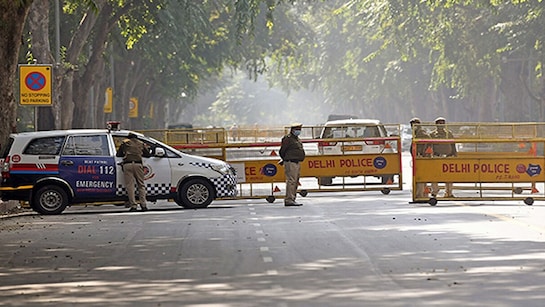It’s 3:47 AM PDT on Thursday, March 13, 2025, and a chilling story from Delhi has shaken travelers and the hospitality industry alike. A British tourist was allegedly raped by a man she meet on Instagram, in a hotel in southwest Delhi’s Mahipalpur area. The incident, which unfolded on March 11, has led to the arrest of two men, raising serious questions about safety for visitors in India. Let’s unpack this distressing event and what it means for tourism safety and the hospitality sector.
A Trip That Took a Dark Turn
The British tourist, a woman from London, arrived in India on March 7, eager to explore Maharashtra and Goa. While on her trip, she invited a man named Kailash, whom she had befriended on Instagram in February, to join her. Kailash couldn’t meet her in Mumbai, so he asked her to come to Delhi instead. On March 11, she checked into a hotel in Mahipalpur, a busy area near the Indira Gandhi International Airport, often chosen by travelers for its convenience.
- The Meeting: She called Kailash to her hotel, where he arrived with a friend named Wasim. They had dinner together, shared drinks, and headed to her room.
- The Assault: That night, Kailash allegedly raped her, despite her objections. When she raised an alarm, he called Wasim to intervene, who then molested her.
- Further Trauma: As if that wasn’t enough, she later reported being inappropriately touched by a hotel staff member in the lift while seeking help.
The next morning, feeling unwell, she visited a Delhi hospital, where she bravely shared her ordeal with doctors, leading to a police report.
Also check:- Ascott Intensifies India Expansion, Targeting Significant Inventory Growth
Swift Action by Delhi Police
Delhi Police acted quickly, arresting Kailash on rape charges and Wasim for molestation. They’ve also informed the British High Commission about the incident, ensuring the British tourist gets support. The police statement confirmed she had come to Delhi specifically to meet Kailash, a 24-year-old from east Delhi, after months of chatting online. But the warmth of a social media friendship turned into a nightmare.
- Investigation Ongoing: Police are digging deeper, looking into the hotel’s role and the staff member’s involvement.
- A Bigger Picture: This case comes just days after an Israeli tourist and her host were gang-raped in Hampi, Karnataka, showing a worrying pattern for tourism safety in India.
The woman’s courage in reporting the assault has sparked a much-needed conversation about how India can protect its visitors, especially women traveling alone.
Also check:- Fairmont Hotels Debuts 446-Room Luxury Property in India
A Blow to Tourism Safety in India
This incident isn’t just a personal tragedy—it’s a red flag for India’s tourism industry. Posts on X reflect growing concern, with some users asking, “Is India really a safe place to visit?” A travel blogger named Somya Shekhawat shared her fears about traveling alone, a sentiment echoing across social media. High-profile cases like this, including the 2012 gang rape of a student in Delhi and a 2024 assault on a Spanish tourist, keep India under scrutiny for women’s safety.
- Foreign Visitors at Risk: India welcomed over 9 million foreign tourists in 2023, but incidents like this could scare them away.
- Trust Issues: The British tourist’s experience with hotel staff adds another layer of worry—can travelers even feel safe in their accommodations?
- Global Spotlight: With international media covering the story, India’s image as a safe destination takes a hit, especially after the Hampi case.
For a country pushing to grow its tourism numbers, these events are a stark reminder that safety can’t be ignored.
What This Means for the Hospitality Sector
The hospitality sector in India is feeling the heat. Hotels in Mahipalpur, often budget-friendly and close to the airport, cater to many international travelers. But this incident exposes cracks in safety measures. The British tourist alleged that a hotel staff member molested her in the lift—a place where guests should feel secure. This raises big questions about staff training and guest protection.
- Safety Protocols: Hotels need better security—like CCTV in lifts and common areas—and stricter background checks for staff.
- Guest Awareness: The hospitality sector must educate guests about local risks, especially when meeting strangers from platforms like Instagram.
- Reputation Damage: Hotels in Mahipalpur and beyond might see fewer bookings if travelers start doubting their safety.
The hospitality industry can’t afford to brush this under the rug. With India aiming to be a top global destination, hotels need to step up to rebuild trust.
A Call for Change
This heartbreaking incident with the British tourist is a wake-up call for India. While the Narendra Modi government recently introduced the Immigration and Foreigners Bill 2025 to track foreign visitors, safety goes beyond paperwork. The hospitality sector, police, and local communities need to work together to protect travelers. Some steps could include:
- Better Training: Hotel staff should be trained to spot and stop risky situations, ensuring guests feel safe.
- Public Awareness: Campaigns warning tourists about the dangers of meeting online contacts in unfamiliar places could help.
- Stricter Laws: Faster justice and harsher penalties for crimes against tourists might deter such acts.
The British tourist’s ordeal in Mahipalpur isn’t just about one hotel or one city—it’s about India’s promise to keep visitors safe. For the hospitality sector, it’s a chance to rethink safety and show the world that India can be both beautiful and secure. Until then, travelers might think twice, and that’s a loss India can’t afford.


